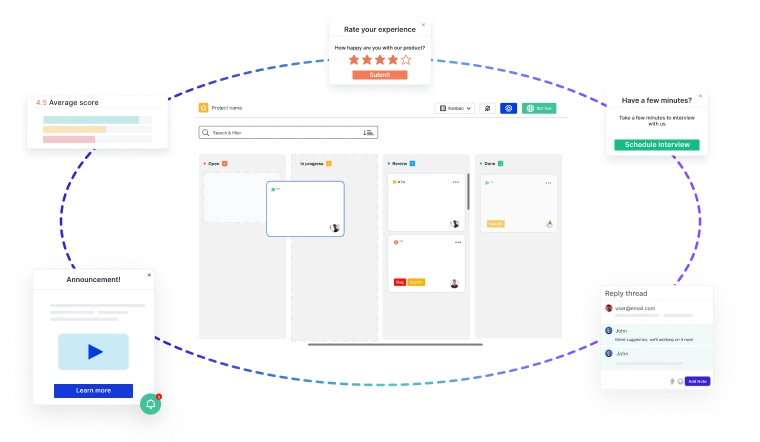When interacting with our customers and blog readers, we usually find that everyone has a different set of ideas on proper user testing workflows. Blame it on the inconsistencies when it comes to the terminology of User Testing, Usability Testing or User Acceptance Testing. The need for clarification on this topic is certainly huge.
In this blog post, I will try to bring some light into the fields of Usability Testing as well as User Acceptance Testing. I will also highlight the main differences of both areas. Check out what user testing is all about.
Usability Testing or User Acceptance Testing?
User acceptance testing (UAT) is one of the final and the most critical stages when you’re developing software. The concept seems simple enough: your new product or application is tested in the ‘real world’ by the intended audience itself.
This process makes sure that the product will be able to handle all required tasks in a practical scenario. An application should always go through user testing before it’s launched.
We all know we should do it, but actually getting around to it may seem trickier than you think.
The difference between UAT and Usability Testing
At this point, it is probably a good idea to talk about two common terms in testing that people often use interchangeably.
These are User Acceptance Testing and Usability Testing. Even though both are essential for the success of a web application, they each have a very different focus and are executed at different stages of the software development life cycle.
User Acceptance Testing is done near the end of the product development process. It is generally used so that the developers can be sure that the product fulfills all their customers’ requirements.
Usability Testing is done before the User Acceptance Testing, usually towards the middle of the design process. This method is used to test if the developed application is convenient and user-friendly. Usability Testing gives a lot of flexibility for changes in the design of the application that’s being developed.
The crucial role of Usability Testing
Usability Testing is usually done with a very small and select audience and preferably in a strict and observable environment.
Every aspect of the application is tested for their usability and ease of operation. These tests often involve 5-6 people who perform certain tasks while using the product. It also involves a usability engineer who makes notes, observations and/or interviews them, etc.
For example, when a new e-commerce website is being designed, a test team will start Usability Testing even before the website is finished. These people will check its usability for things like how convenient and fast it is to search for different items, get different options, search by keywords, logging in, browsing, putting items in a cart and payment modes. Functionality is checked thoroughly during this phase.
Unmoderated vs. moderated Usability Tests
Digging a bit deeper into the topic of Usability Testing, you might have to choose between unmoderated and moderated usability tests.
On the one hand, an unmoderated test enables you to get a better idea of how your website or application performs in the wild.
However, moderated usability tests might sometimes be necessary – especially in the case of complex applications – to guide the tester through your test case.
Take a look at the following table which highlights the benefits and drawbacks of each category.
User Acceptance Testing for Agile Teams?
When it comes to agile testing and how to establish agile tests, I want to focus on the role of Acceptance Testing. Again, Acceptance Testing is nothing new. Acceptance tests raise the question, “Does the solution work for the user?”
Acceptance tests put the focus on the user. According to the principles of agile (focus on people, not workflows), acceptance tests are crucial for capturing the current user requirements and verifying them.
As mentioned in our user acceptance test blog post, acceptance tests verify that “no requirement change has happened and everything is on track”.
Related Guide:
UAT Document Template and Example
Guide on user testing
Sixzero published a great resource on user testing and all the necessary knowledge to succeed with user testing. Thanks, Sixzero, for writing this extensive e-book. If you want to design and build apps that users actually want, we highly recommend reading this user testing ebook.
Wrapping it up
So, you might wonder how best to make use of Usability Testing and User Acceptance Testing. In general, agile testing isn’t that much about workflows, tools, or checklists. Agile is a cultural issue.
When it comes to agile testing, everyone is expected to work closely together no matter what his or her responsibilities are. But there will be a selective group of people running most of those tests.
I cannot stress this enough: it is important to test your website or web application as much as possible at every step. It doesn’t matter if you’re just sketching out some first mockups or if you’ve already reached feature-complete. Testing should be your top priority.
What’s Next?
To have a productive testing process, you need to use the right user acceptance testing tool. Usersnap is a visual bug reporting and tracking tool for every web project.
Get screenshots in-product and allow users and testers to annotate on screen, metadata and console activities are automatically recorded. Tag and filter the tickets in the Usersnap Projects Dashboard to manage your development and testing process like a breeze.
Unlimited trial sign-up here. Enjoy the new testing experience Microsoft, Fast Company, and 700+ amazing companies are loving.
Accelerate Issue Resolution with Visual Bug Reporting

Identify, capture, and resolve issues faster with screen recordings, screenshots, and contextual feedback—seamlessly integrated into your product development lifecycle.
And if you’re ready to try out a visual bug tracking and feedback solution, Usersnap offers a free trial. Sign up today or book a demo with our feedback specialists.